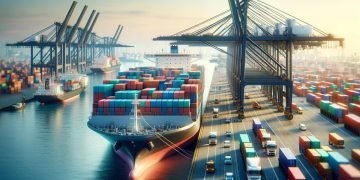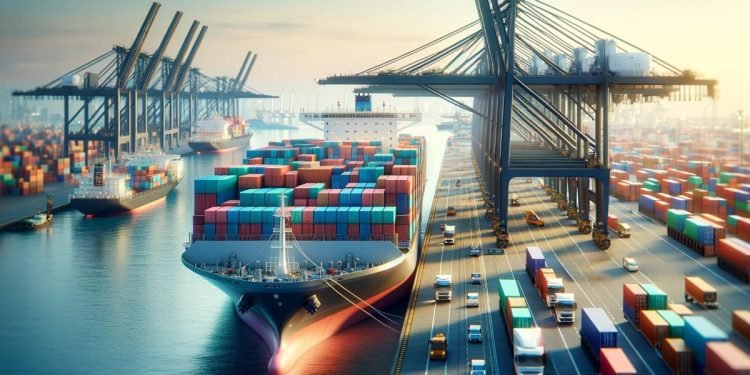By Eva Richardson – The Logistic News
March 21, 2025 – The U.S. government’s latest tariff policies and trade restrictions on Chinese-built vessels and e-commerce shipments are creating significant disruptions in global logistics, supply chains, and e-commerce operations. These measures, which include port fees on China-built ships and the suspension of de minimis import exemptions, are sparking concerns across multiple industries, with far-reaching consequences for exporters, retailers, and transportation companies.
New Port Fees on Chinese-Built Ships Impact US Exports
One of the most contentious policies is the imposition of new port fees on vessels constructed in China, which has led to a shortage of available ships for exporting goods. This restriction directly impacts U.S. coal, oil, and agricultural exports, with the coal industry warning that it may halt overseas shipments within 60 days due to rising costs that make American coal uncompetitive in the global market.
With China-built vessels accounting for a significant portion of international shipping, these fees are disrupting trade routes and increasing transportation costs for key U.S. exports, including liquefied natural gas (LNG) and agricultural products. Industry experts caution that this policy could trigger a ripple effect across global supply chains, causing higher costs and potential shortages for importers and exporters alike.
E-Commerce Giants Hit by De Minimis Import Rule Changes
Another major shift affecting global logistics is the suspension of the de minimis provision, which previously allowed duty-free imports of packages valued under $800. This rule has been a key factor in the success of fast-growing e-commerce platforms such as Shein and Temu, which rely on direct shipments from overseas suppliers to fulfill U.S. orders.
With the de minimis threshold removed, these platforms now face higher import taxes, increased costs, and extended delivery times. In response, the U.S. Postal Service temporarily halted incoming packages from China and Hong Kong, citing operational challenges in processing new customs requirements. This decision has caused major disruptions for cross-border e-commerce, with potential consequences for millions of consumers who depend on affordable online shopping.
Industry Backlash and Legal Disputes Over Trade Measures
The latest tariff and trade restrictions have sparked intense criticism from global shipping organizations and business groups. The China Shipowners Association has condemned the new port fees, arguing that they violate World Trade Organization (WTO) regulations and could escalate tensions between the U.S. and China.
Meanwhile, logistics and transportation executives warn that these measures could lead to significant supply chain disruptions and higher costs for American businesses and consumers. Industry leaders are urging policymakers to reconsider the economic consequences of these restrictions and explore alternative solutions to enhance trade security without undermining market stability.
Looking Ahead: The Future of Global Trade and Supply Chains
As the U.S. government continues to redefine its trade policies, businesses operating in international logistics, e-commerce, and transportation must adapt to these evolving challenges. Industry stakeholders are encouraged to monitor regulatory developments closely, assess potential impacts on shipping and logistics strategies, and explore alternative supply chain models to mitigate disruptions.
The coming months will be critical in determining the long-term effects of these policy changes on global trade flows, with ongoing discussions likely to shape the future landscape of international commerce and transportation logistics.
For the latest insights into global trade, shipping regulations, and supply chain strategies, stay connected with The Logistic News.
Eva Richardson
Senior Journalist, The Logistic News























